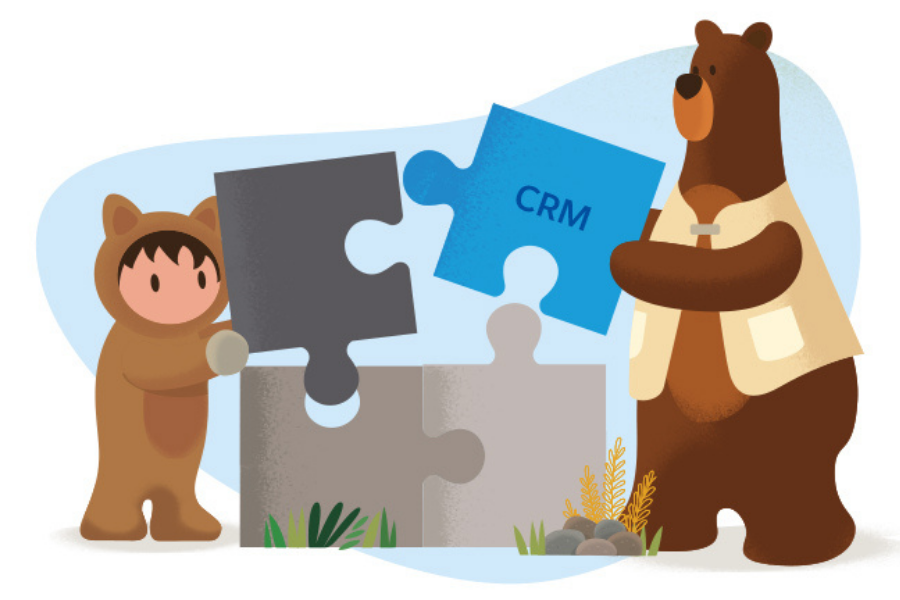
Top 5 Tips for a Highly Successful Salesforce Implementation Plan
For any profit-oriented organisation, implementing a customer relationship management (CRM) system like Salesforce can be challenging. This is simply because it brings numerous changes that happen on all levels and involves all organisation employees.
Now comes the tricky part – change is always difficult, and CRM implementation is no exception. This is precisely the reason why as much as 55 – 75% of CRM implementation projects initially fail. For this, and many more reasons, you have to trust only an industry expert like Consleague for your Salesforce CRM implementation requirements.
The best thing is that the benefits of surviving the entire Salesforce CRM change process are excellent.
Let us have a close look at some statistics related to CRM that would inspire you to take your customer relationship management project to the next level.
- Today, CRM is the fastest-growing software market. In 2010, the CRM market was a $14 billion industry, and it is expected to reach $80 billion by 2025, which will be a massive 600% increase.
- The average return on investment (ROI) for CRM is £2.50 to £5.60 for every pound spent.
- 48% of sales teams utilise their customer relationship management systems to enhance operations.
- 63% of organisations prefer cloud-hosted customer relationship management systems over on-premise applications.
Tips for Successful CRM Implementation with Salesforce:
1. Ensure Top Management Buy-In
The entire process of CRM adoption is successful only when people use the system. It is worth noting that the lack of support from senior executives is the biggest reason why many CRM projects fail in the first place.
There is no denying the absolute fact that a Salesforce CRM is a project that includes every aspect of an organisation. It is the top management’s responsibility to build and inspire credibility, among others. The early and continuing involvement of the top executives sends positive ripple effects throughout the organisation. Don’t delay things for too long; get your leaders on board!
2. Look Out For the Best CRM Project Manager
The Project Manager is the most important person in the before, during, and after stages of a Salesforce CRM implementation – something at which Consleague are expert. This is simply because the project manager is the one who organises and manages the complete process. Therefore, the Project Manager should not be just good, but best and awesome! The person entrusted with this responsibility must be a smart and experienced “doer” with outstanding commitment, enthusiasm, and an eye for detail, along with an inspiring personality and excellent communication skills.
3. Introduce Salesforce with A BANG!
Online Marketing is usually underestimated, and you must ensure that your marketing teams are in a full-fledged CRM promotion mood right from the word go! Now comes the most exciting question: How?
Create an engaging poster, write a series of blog posts, create and maintain awareness through YouTube videos and Instagram posts, make a unique launch T-shirt, host a launch party for everyone, capture pictures, and circulate the images everywhere.
4. Establish Internal CRM Usage Guidelines and Salesforce Training
The first and foremost thing for you to always remember is that the CRM is only as good as the data that resides in it. Therefore, there must be some clear-cut usage guidelines. For instance, there must be clear guidelines on registering a sale or including new company data.
Suppose, for instance, if R1, R2, and R3 all register their sales in the customer relationship management system, but R4 doesn’t, then it would be difficult for the sales manager to take out the accurate sales report and guide & manage his sales team.
The point is: it becomes challenging for people to perform different operations if they are not aware of how to enter data into the customer relationship management system: pull reports, track the progress of sales through sales pipelines, provide quick and effective customer service, and send marketing emails to customers. The CRM usage guidelines and training must be readily available and state when, what, and how things need to be handled in the CRM system.
5. Adopt A CRM Philosophy
Customer relationship management is not just about technology but also about a philosophy and a strategy. You need to define how your work processes will evolve to ensure that you have a successful Salesforce CRM strategy. Furthermore, you must be aware of all steps taken at each stage of the implementation process, what objectives you have, how you will measure your goals, and how CRM will complement the business development plan.
You need to change, learn, and unlearn many things during your journey of formulating a CRM philosophy. Adopting a CRM system means that you have to decide how to develop and maintain a strong relationship with your existing and potential customers.
Get Help & Support with Salesforce Implementation
Salesforce CRM Implementation is a comprehensive and ever-evolving process that requires commitment, cooperation, and preparation across the entire organisation.
Our Salesforce Experts have developed our detailed Discovery Mapping Programme™ to address this need. Enabling organisations to look in detail at their own processes, technology and people in a manner so that we can recommend the best technology-based CRM solutions.
Click below to read more about this free, no-obligation service and to book your 30-minute DMP Consultation. Get the Expert Salesforce Help your business needs for a successful CRM implementation.

Discovery Mapping Programme
Book a free no-obligation call with our CRM Solution Experts.
Schedule a call with us today and discover how we can help to set up, configure, and customise Salesforce CRM to meet your business needs, with a dedicated approach and thorough planning.
Source: https://blog.cloudanalogy.com/



